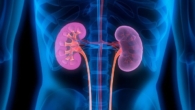
A sick intestine: 6 signs that the main organ of longevity is unhealthy
0
Many aspects of modern life, such as high levels of stress, lack of sleep, consumption of processed foods can harm the gut microbiome. Indigestion, an increased craving for sweets, and constant fatigue sometimes warn that everything is not right with the main organ of longevity.
Scientists have found a connection between the gut microbiome and longevity. An unhealthy organ is thought to lead to problems with the immune system, heart, brain, skin, and contribute to certain life-shortening diseases. You can find out about a sick intestine by seven common signs.
Digestive disorder
Systematic bloating, flatulence, constipation, diarrhea and heartburn can be signs of a diseased intestine. A properly functioning body is much less likely to have problems processing food and eliminating waste.
Increased cravings for sweets
A diet high in processed foods and added sugars can reduce the number of beneficial bacteria in the gut. This imbalance causes an increased craving for sweets, which can further damage the longevity organ. A high content of refined sugar in the diet is associated with increased inflammation in the body, and this can be a precursor to a number of diseases and cancers.
Inadvertent weight change
Gaining or losing weight without making changes to your diet or physical activity can also in some cases indicate an unhealthy gut. This is because a diseased organ can impair the body's ability to absorb nutrients, regulate blood sugar, and store fat. Weight loss is sometimes caused by bacterial overgrowth in the small intestine, while weight gain is caused by insulin resistance or the urge to overeat due to reduced nutrient absorption.
Sleep disturbances or constant fatigue
An unhealthy gut can contribute to insomnia and, therefore, lead to chronic fatigue. This is because most of serotonin, a hormone that affects mood and sleep, is produced in the gut.
Skin Diseases
Skin Diseases, such as eczema may be associated with intestinal damage. Inflammation in the body, caused by poor nutrition or food allergies, can cause the loss of certain proteins in the body, which, in turn, can irritate the skin and cause various skin diseases.
Autoimmune diseases< /h2>
Researchers are constantly finding new evidence of the gut's influence on the immune system. It is believed that a diseased organ can increase systemic inflammation and alter the proper functioning of the immune system. This leads to the fact that the body begins to attack itself, and not harmful “invaders”.









Leave a Reply